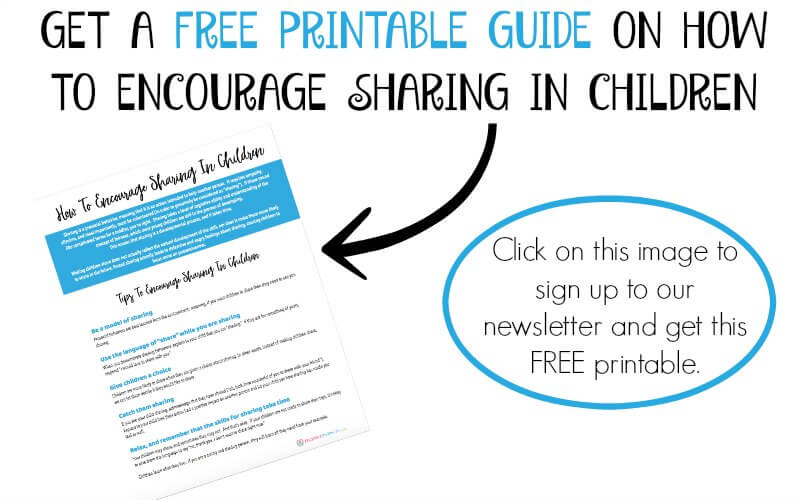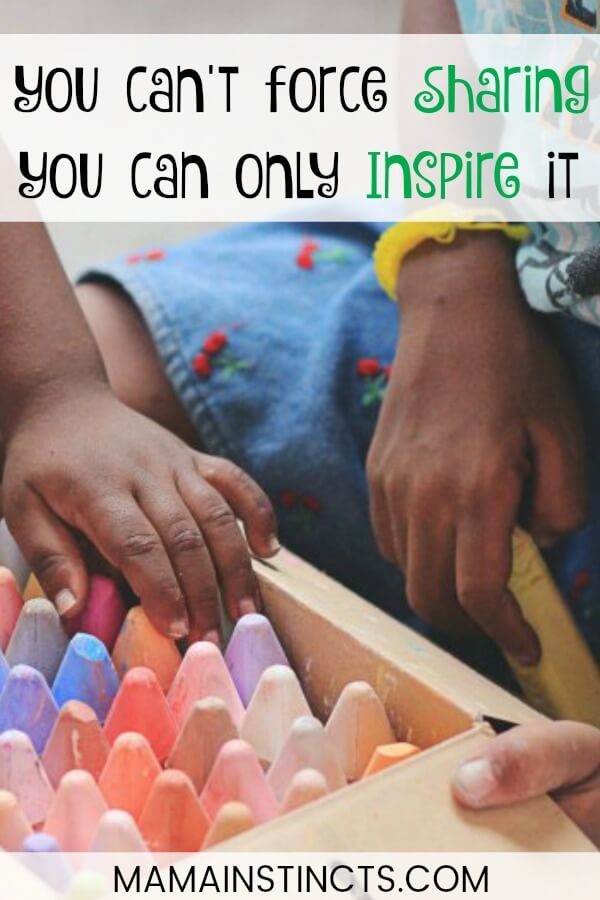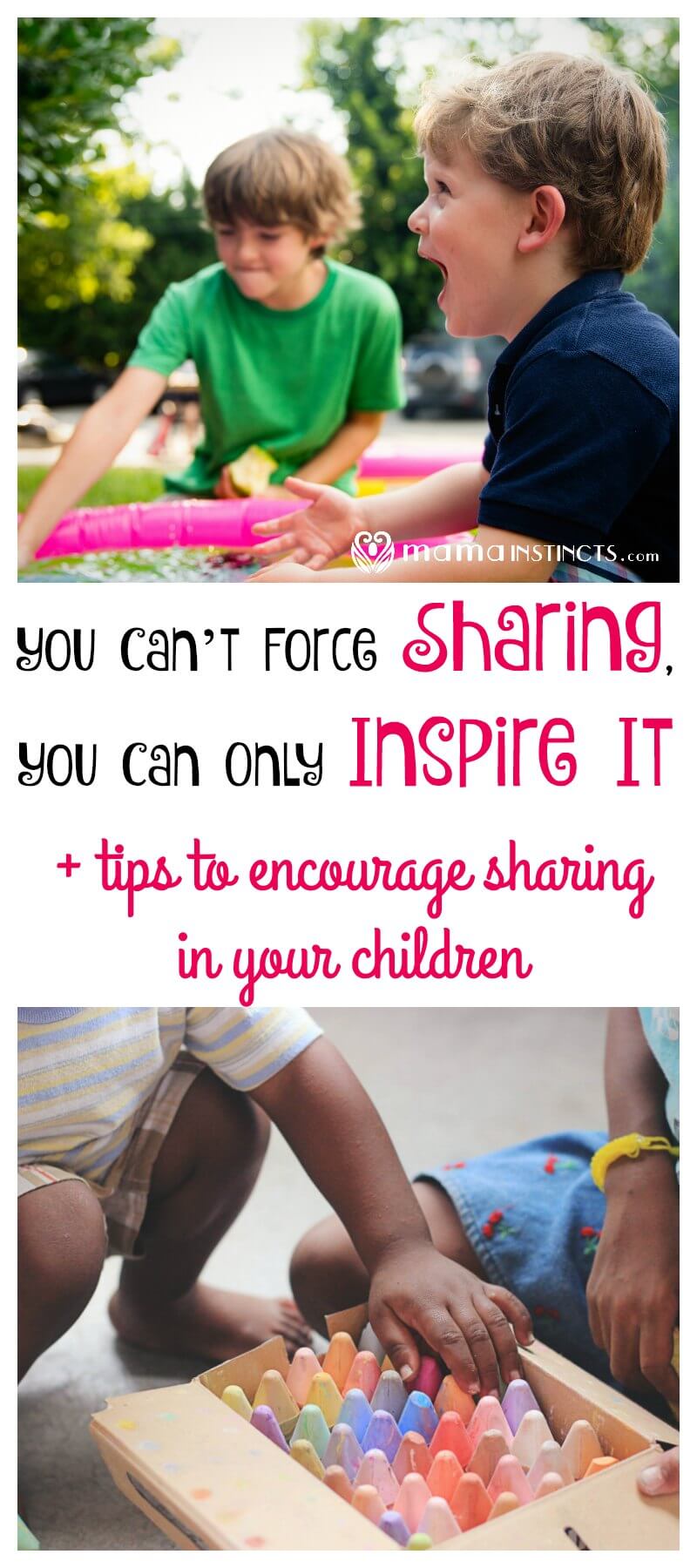I watch as a little girl grabs a shovel, which lays near a little boy playing contentedly in the sand. Both children look around the age of two or three, struggling still to navigate their bodies or express themselves in words. The little boy looks up at her with big eyes and bursts into loud tears, reaching out to grab for it. She clutches it defiantly to her chest. Two mothers scramble for how to respond.
“You have to share,” they say in unison to their respective children. They both know there are plenty of sand toys to go around.
The tears are not assuaged. The little girl is not convinced and the little boy has no intention of being persuaded that this is not a catastrophe. The girl bursts into tears now, threatened by the idea that she might lose the precious shovel. Two children are crying loudly.
The mother of the boy tries to give another shovel to her son while the girl’s mother tries to convince her to give the shovel in question in exchange for something else. The wailing continues. The mothers squirm with discomfort, frustration written on their faces. There’s embarrassment there, and worry, too. “We need to share,” they both repeat, in desperation. But written on their faces, the struggle is real: what do we do??
If they both grabbed up their phones and started voraciously googling “get your kid to share,” they would come across hundreds of websites all suggesting different things. Some discuss rewards, others discuss consequences, and still others will talk about how to avoid the situation in the first place. And yes, there are many ways to handle this situation. But first, it helps to really understand what sharing is all about.

Sharing is a prosocial behavior, meaning that it is an action intended to help another person. It requires empathy, altruism, and most importantly, must be volunteered (in order to genuinely be considered as “sharing”). If these sound like complicated terms for a toddler, you’re right. Sharing takes a level of cognitive ability and understanding of the concept of fairness, which most young children are still in the process of developing. This means that sharing is a developmental process, and it takes time.
It’s not that you won’t see toddlers share; these prosocial behaviors begin to emerge as empathy begins to develop. Your child may offer you a bite of their food or a hug when you are sad. They might offer a toy to a friend. These offers may not be consistent or timely, but as they grow, you will notice them more and more. Between the ages of six and twelve, empathy will grow dramatically and these prosocial behaviors will become a part of your child’s skill set as they begin to value fairness. Children grow to be more likely to not only voluntarily share, but even go out of their way to make sure others have a fair amount.
Given that sharing behavior is predictive of success, it’s easy to understand why parents might feel compelled to make their children share. The problem is that “making” children share does not actually reflect the natural development of the skill, nor does it make them more likely to share in the future. If making children share becomes associated with you taking away their toy and giving it to someone else, you may find that forced sharing actually leads to defensive and angry feelings about sharing, causing children to focus more on possessiveness.
[thrive_2step id=’6552′] [/thrive_2step]
[/thrive_2step]
So, if sharing is so important, how can we encourage it?
First and foremost, you have to be a model of sharing
Prosocial behaviors are best learned from the environment; meaning, if you want children to share then they need to see you sharing. Sharing your meal, your ice cream cone, your blanket, your seat…these are all ways for children to see you demonstrate this behavior. Sharing with people other than your child holds importance as well. You can share household items with your neighbor or share your snacks with other families at the playground. The more your child witnesses sharing, the more likely they will share.
Use the language of “share” while you are sharing
When you demonstrate sharing behaviors, explain to your child that you are “sharing.” If they ask for something of yours, respond “I would love to share with you.” If you are sharing with others, express to your child that you are sharing and discuss why you have made that choice (“I’m going to share my recipe with Grandma because I know that will make her happy”). The more often that you use this language, the more children will categorize these behaviors as sharing and understand what you mean when you talk about it.
Give children a choice
Research demonstrates that children are more likely to share when they are given a choice about sharing. In other words, instead of making children share, we can let them decide if they would like to share. While this may not yield the response we’d like in every situation, it goes a long way in encouraging kids to share.
Let’s take the above scenario. The mother of the little girl might have pointed out the little boy’s emotions: “oh, no, that little boy is so sad, I bet that he was really hoping to play with that; would you like to share that shovel with him and I’ll help you find another one?” Giving your child a choice to make this difficult decision will become an exercise in sharing, and the more often they choose to share, the more likely they will choose to share again.
Catch them sharing
If you see your child sharing, acknowledge that they have shared (“oh, look, how wonderful of you to share with your friend”). Express to your child how their action had a positive impact on another person (“I can see your friend is so happy that you shared with him…look how happy you have made him”). Let your child see how sharing has made you feel as well (“it makes my heart so happy when I see you share”). This encouragement will help your child view sharing as a positive act to be repeated.
Relax, and remember that the skills for sharing take time
Your children may share, and sometimes they may not. And that’s okay. If your children are not ready to share their toys, it’s okay to give them the language to say “no, thank you, I don’t want to share right now.” Sometimes children have strong reasons for not wanting to share in a given moment (like that little girl and boy above), and those feelings are legitimate, just as adults don’t always choose to share either. Give them the space to make those decisions and grow.
Children learn what they live…if you are a caring and sharing person, they will learn all they need from your example.
This is a guest post written by Anjali from More Than Just Montessori.
Anjali is an American Montessori Society certified educator working closely with primary aged children (2 to 6 years) and their families since 2003 and substitute teaches at her children’s Montessori school. As a faculty member of the Northern Virginia Montessori Institute, she educates future teachers in the language development of young children. Now a mostly stay-at-home mother to her son and her daughter, her approach to parenting credits Montessori philosophy, positive discipline, attachment parenting, gentle parenting, and staying apprised of current research in child development. But, most of all, she’s all about snuggles, modeling kindness, and a warm cup of tea.


What an excellent read! I never thought of sharing as having to be volunteered, but of course that is true! Also your suggested solutions for handling these situations are priceless. Empathy is so important.
My twins are almost one-year-old, but it won’t be long until this will be a day-to-day topic for us. They are already “stealing” eachother’s toys! Thank you!
Rebecca I am so happy you found this post useful! I, myself, have a 1 year old and an almost 4 year and some days it’s easy and on other days it’s so though. So it’s a good reminder on how to handle those situations. 🙂
Hi Carolina. What a nice article. Thats exactly what I needed to read.
I have a 3 year old who doesnt want to share at all! I think I only saw him sharing once in a life. We r trying to give him space and dont force him, and trying to be an example but there is no improvement. I hope he ll learn that sometimes becase I am already getting comments we r rasing selfich child. And that makes me so sad. He gets really cross even if sometimes comes close to him when he plays with something. And god forbit if some small kids try to reach after his toy. I dont know what to do about it.
Eva
Eva, it’s understandably frustrating when young children your son’s age don’t share, we feel scared and worried that those skills won’t appear. However, when something is a developmental skill, it doesn’t always come when we want it to and it’s not something we can make happen…like walking, or talking. We can support and encourage it, but then we must let nature do the rest. So, your son not sharing all the time at 3 is not something to be alarmed about, it’s normal. And I bet you will notice times when he does want to share, like giving you bits of his food. What you can do is keep modeling sharing and when you share, tell him that you are sharing — with him and with others. The more you model it and the more he experiences it, the better. And when his brain is ready, you will see it happen more and more. Consistent voluntary sharing however probably won’t happen until 6 or 7 — and that’s normal.
So what happens if my child doesn’t want to share? What do I say to the other mother when my child has declined politely the idea of sharing? Because the way I see it, I would be to blame regardless, for not instilling the importance of sharing to my child.
Irma, it can be very frustrating to deal with the expectations from others that may not understand a child’s development. Since real sharing cannot be taught, no one is to blame. Rather, we are waiting for the child to come to that place naturally. If another parent asks to share but your young child does not want to, you may say “I’m sorry but he does not feel like sharing right now.” The other parent may not understand, but know that regardless of what that parent thinks, your expectations of your child are fair and appropriate and no one else should make you feel badly about that.
Thank you so much. That really helps. You are right, some parents won’t understand but having the right response can help minimize any conflict.
Excellent article. Thank you.
Somehow I came up with this sharing “rule” when my guy was around 1-ish.
1. If he was sharing his sand toys at the park, and having a good time, I just watched. If a child wanted the toy my son was playing with I explained to them that he was playing with it, and they could choose to wait until he decides to stop playing with it or share-which he may never do because the toy belongs to him.
2. If my son wanted another child’s toy at the park, I explained to him that he had to wait until they stopped playing with it or shared with him… and they may never want to share. Not your toy and the little boy/girl may not want to share-that’s ok, let’s go focus on something else.
3. If it was a public park and a turn on a swing set was wanted, that was a different issue. He had to allow other children a turn, and they allow him a turn in a reasonable amount of time. Or if his friends were visiting he would share for the most part, if he didn’t share I’d find out why. Is he angry, etc? And then explain/ remind that when he visited his friend they shared their toys and when they come to our house they want to play with his toys. I found there were only 2 boys he didn’t want to share with out of group of 30 friends he has. One boy liked to punch and hit my son and other bit him on his birthday-my son knew he just didn’t like or trust those 2 boys. And he didn’t want to share with them.
4. When he reached around 2-3, and the beginnings of reason glimmered in his mind, I started asking him if maybe he might want to think about how the other person feels if they don’t get a try. That he could teach them how to use the toy, or they will share their stuff with him if he shares with them maybe, type of approach. I still had the rule that he was not allowed to take any toy from another child until they willingly gave it to him. One time he followed/kept an eye on, a boy who was in one of those flintstones type cars, at a community playgroup, for 30 minutes when he was 3. The moment the boy exited and left the car my son got in and did not get out for another 30 minutes. If anything it taught him determination, focus and possession.
Now my son is almost 5, he shares when he wants to and there is a measured, thoughtful approach to his sharing. He knows that he is not allowed to take things from others nor are they allowed to take things from him.
Thank you for very nice article! Would you please advise what should i do and how should i react if we have a playdate at our house and my almost 3 year old girl screams when any of her toys been aproched or taken by her friends. Im not talking only about her favorite toys, just anything is hers, she is getting very protective.
Thanks in advance!
What if you are the mother of the girl and the girl refuses to give the shovel back, should I just let her keep the shovel? I understand and agree with what’s written on the article but I always feel awkward for the other mother who might have not read this article (or has a different opinion about sharing) and expects me to force my child to give the “shovel” back because is the “right” or “fair” thing to do
How I handle these situations is that I tell my kid out loud that this other kid wants to play with that toy so that once she’s done playing with said toy, she can give it to the kid.
This way she decides when she’s done and the other parent is aware of what we’re doing.
I love that you talk about what sharing is. It can be so frustrating and hard to teach a kid how to share but knowing the actual basis of sharing is so helpful. Thank you!
You’re very welcome! I am so happy you found it useful.